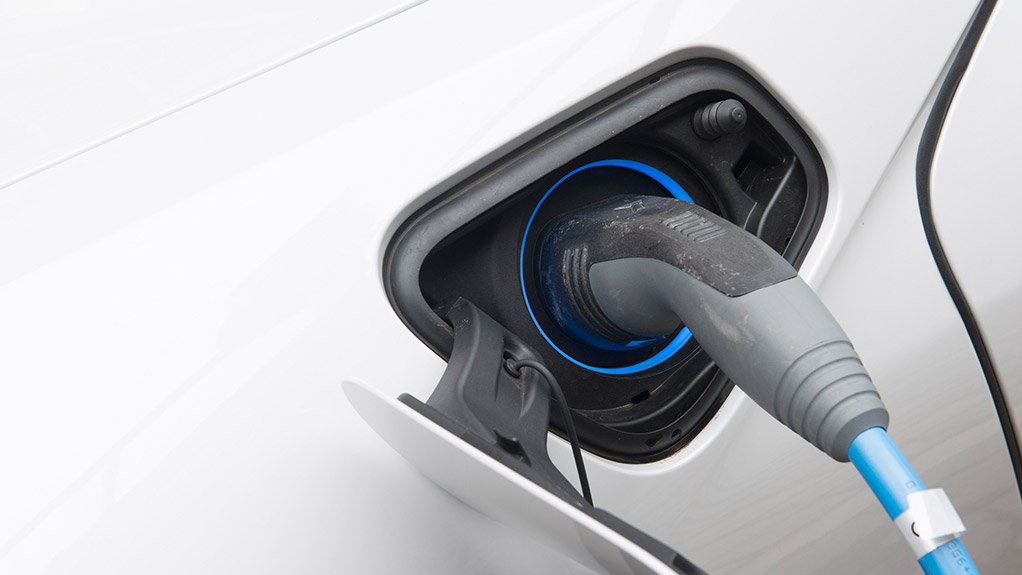SA transport sector’s shift to zero emissions requires move to rail, banning new ICE vehicle sales by 2035
For South Africa to cut greenhouse gases (GHGs) in the transport sector to zero, between 15% to 20% of road traffic must move to rail.
This shift is also key in addressing road congestion, and improving the efficiency of the overall transport system.
However, it will require, as a prerequisite, a fundamental change in the country’s rail system to improve safety, reliability and efficiency.
A move to net-zero will also require around 750 000 electric vehicles (EVs) on South Africa’s roads by 2030, with a complete ban on the sale of new internal combustion engines (ICE) vehicles by 2035.
These are some of the highlights of the latest report to be released as part of a series of publications from the Climate Pathways and Just Transition Project run by the National Business Initiative (NBI), in partnership with Business Unity South Africa and Boston Consulting Group.
The report is called ‘Decarbonising South Africa’s Transport Sector’.
Globally, the transport sector is one of the most significant contributors to GHG emissions, with most transport utilising ICEs, powered by fossil fuels.
Transport is the third largest emitting sector in South Africa, with almost 55-million tons of carbon dioxide emissions a year, contributing more than 10% of the country’s national gross emissions.
The NBI report details how the decarbonisation of South Africa’s transport sector can unfold, and covers a suite of levers that must be deployed and trade-offs that must be made in charting a course to net-zero by 2050.
According to the report, fully decarbonising South Africa's transport sector will require four core levers, namely reducing demand through improved spatial planning (reducing travel times and travel distances); shifting to more efficient transport modes (moving from road to rail, increasing the use of public transport); accelerating the adoption of green technology in road transport (using EVs, coupled with the decarbonisation of the national grid); and greening the remaining fossil fuels left in the car parc and aviation and shipping industries through low-carbon fuels.
Achieving these objectives will not be easy, and “will require integrated policy support, coordinated infrastructure investments and collaboration amongst all key stakeholders,” notes the report.
“Without a deliberate and coordinated local effort, South Africa’s transport sector will be on a trajectory that is inconsistent with South Africa’s climate commitments or Nationally Determined Contribution under the Paris Agreement by 2030, and inconsistent with net-zero by 2050.”
The report notes that “immediate next steps and no-regret actions” in South Africa’s decarbonising journey include reducing the import tariffs on EVs, and, therefore, growing the adoption rate among consumers; investing in revitalising rail infrastructure; and improving governance within rail and port management.
The report adds that the South Africa transport sector not only faces the challenge of decarbonising, but also one of improving the quality and effectiveness of its operations.
Article Enquiry
Email Article
Save Article
Feedback
To advertise email advertising@creamermedia.co.za or click here
Press Office
Announcements
What's On
Subscribe to improve your user experience...
Option 1 (equivalent of R125 a month):
Receive a weekly copy of Creamer Media's Engineering News & Mining Weekly magazine
(print copy for those in South Africa and e-magazine for those outside of South Africa)
Receive daily email newsletters
Access to full search results
Access archive of magazine back copies
Access to Projects in Progress
Access to ONE Research Report of your choice in PDF format
Option 2 (equivalent of R375 a month):
All benefits from Option 1
PLUS
Access to Creamer Media's Research Channel Africa for ALL Research Reports, in PDF format, on various industrial and mining sectors
including Electricity; Water; Energy Transition; Hydrogen; Roads, Rail and Ports; Coal; Gold; Platinum; Battery Metals; etc.
Already a subscriber?
Forgotten your password?
Receive weekly copy of Creamer Media's Engineering News & Mining Weekly magazine (print copy for those in South Africa and e-magazine for those outside of South Africa)
➕
Recieve daily email newsletters
➕
Access to full search results
➕
Access archive of magazine back copies
➕
Access to Projects in Progress
➕
Access to ONE Research Report of your choice in PDF format
RESEARCH CHANNEL AFRICA
R4500 (equivalent of R375 a month)
SUBSCRIBEAll benefits from Option 1
➕
Access to Creamer Media's Research Channel Africa for ALL Research Reports on various industrial and mining sectors, in PDF format, including on:
Electricity
➕
Water
➕
Energy Transition
➕
Hydrogen
➕
Roads, Rail and Ports
➕
Coal
➕
Gold
➕
Platinum
➕
Battery Metals
➕
etc.
Receive all benefits from Option 1 or Option 2 delivered to numerous people at your company
➕
Multiple User names and Passwords for simultaneous log-ins
➕
Intranet integration access to all in your organisation



















